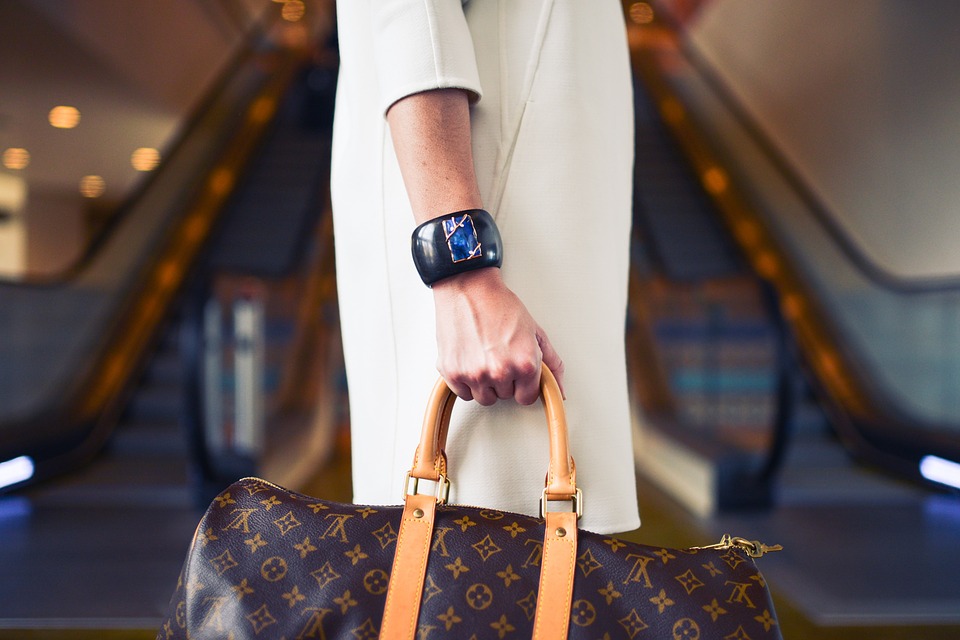Commodity theory puts forward the notion: the scarcity of the product alters its perceived value. This perception of scarcity, exclusivity, and therefore reduced accessibility to all reinforces the principle of prestige that consumers expect from luxury fashion. Not to mention this ‘exclusiveness’ creates allure, consumer excitement builds which justifies higher price points. Finally, demand goes up for those who can afford the price tag – and where there is demand, there will be sales. But what happens when you can’t justify the high costs on the latest designer trends?

Fake it 'til you make it
It has been argued, the desire to own (or at least be seen to own) luxury goods, combined with influencer and social media-driven culture – reinforces the message that success is measured by ownership of material goods has resulted in a toxic formula.
Consumers of all ages, through platforms such as Instagram, are exposed to and engage in the artificial cultivation of sharing and crafting a fabricated ideal self – and one consequence of this movement is the surge in demand for counterfeit and fake designer goods – whatever the cost.
Studies report this dysfunctionality stems from an unmatched pressure to dress in a manner which emulates the individual’s perceived image of ‘success’ through the owning of branded material goods. As a result, consumers gain the gratification of purchasing such goods, being seen to own the goods and show symptoms of exhibiting the somewhat warped traits of brand loyalty – whether the product is real or not seems of lesser importance.
So is the illusion that comes with consuming high end fashion (real or replicated)? Is the pressure own a designer item so intense that we’ll buy a fake just to belong?

Consumer confusion
There is often confusion as to what is considered a knockoff or a counterfeit good – and where the line between what is legal and illegal is crossed.
A knockoff is a product that has copied the style of another product but not the exact design whereas, counterfeits are ‘[m]oney, goods, or documents not genuine, but have been made to look exactly like genuine ones in order to deceive people.’ Do you see how easy it is to blur the lines between legal and illegal trading and purchasing?
Even more, the fashion industry is in a constant state of rotation and adaptation. The high street takes inspiration from the runways, designers take inspiration from other designers, and fashion history is reworked and remodelled to produce future forecasted trends. Thus, the issue of copyright within the fashion industry is somewhat a catch 22 and an ever growing grey area.
The complicated relationship between consumers and counterfeits
So what is the allure to buying or sourcing counterfeit or fake fashion?
Even Gucci, in their Menswear Fall/Winter 2020 runway collection exploit the concept of embossing the wording ‘FAKE’ across the collection with the justification, “A playful commentary on the idea of imitation.” Therefore re-igniting the conversation of how we feel about designer brands in 2021.
One explanation for our ability to justify buying knock-offs is Cognitive Dissonance Theory. For example, while millennials are more likely to buy counterfeit products due to factors such as affordability and social media pressures, articles also suggest this generational group is in fact moving away from fast fashion due to the rising awareness of sustainability to prevent environmental harms.
Even with this being so, there is no doubt the consumption of counterfeit fashion is cause for concern. Why is the allure of owning fake designer fashion so rampant when there is so much readily available and accessible information surrounding both economic and humanitarian effects of producing and trading these goods? And as already mentioned, studies such as those by Psychologists Ha & Lennon (2006), Chaudhry & Stumpf (2011) and Maldonado & Hume (2005) have shown where there is a market and a demand, trading will continue to be widespread.

So what is the answer?
Owning a counterfeit version of a designer product not only impacts the consumer’s sense of identity – increasing feelings of achievement and instant gratification, but possession of fake luxury fashion also raises positive associations of belonging and acceptance from a desired social group.
However, the psychological impact of owning these goods, despite ethical concerns which are known and widely broadcast – even if quietly, are of lesser importance.
The exhibition of presenting the illusion of a luxury lifestyle via platforms, such as Instagram in exchange for societal approval trumps the ethical concerns. That being said, one thing is clear, there are strong grounds to suggest counterfeit fashion is not going away any time soon.




Thank you for this insightful article.